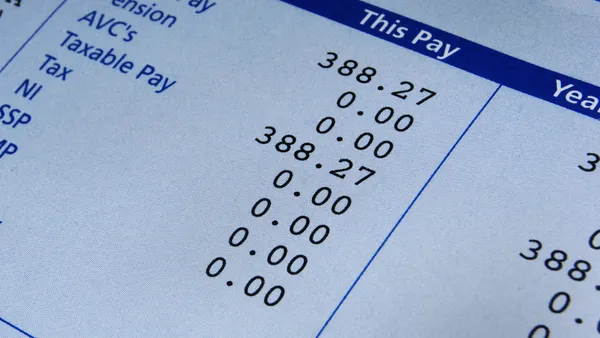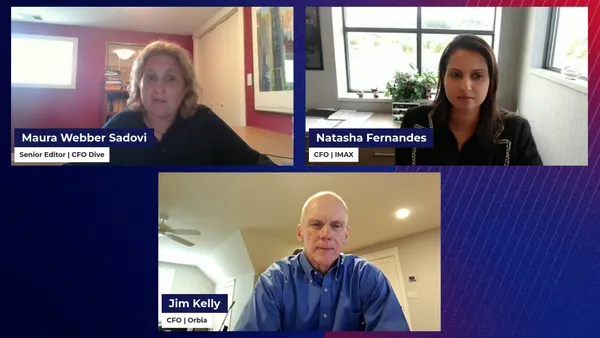The pursuit to become a CFO can be a long, uncertain process. Few people will eventually reach this role in their companies, but a group of CFO panelists at the CFO Live virtual event Tuesday provided insights and key pieces of advice. For those who eventually make the cut, the first 30 to 90 days in the CFO role are most critical.
"There are so many people watching how you perform at this time, including board members, your team, and maybe even outside shareholders," Mark Noffke, CFO of airline caterer Flying Food Group, said. "You need to make sure, whatever you're doing, you act, you listen, and you take care of the business."
Anna Gomez, CFO of advertising agency Leo Burnett Group, agreed, adding that acclimating to the CFO role was the toughest part of being promoted. "The first 30 days are critical in understanding who your team is, and what the corporation is about," she said. "The most important thing is building those relationships across the company, and learning about the people you're working with and for."
"The key is establishing early relationships, finding out what everyone's needs are, and identifying any gaps within your department that you need to fill,"Steven Bourne, CFO of Clarus Therapeutics, said in describing his first few weeks at his PE-backed company. "Work together with your team to plan how this will all get up and running. Then, the final part is setting up the deliverables."
When it comes to the promotion to CFO that many finance team members are vying for, the panelists agreed there is rarely an ideal situation in which a person should aspire to attain the role.
"It's often a question of freedom and flexibility," Bourne said. "It's not unusual for people to want to take a chance for equity participation in a startup role. But, if you like security, I’d advise against that."
Ben Ellis, managing partner at Still Valley Partners, whose company provides outsourced CFO services, pointed out that often, a CFO credential at one company may not translate into preparedness for the role at another.
"No matter how competent someone is, if you're going from, say, an early stage company to a Fortune 50 company, the market, in almost every case, will say, 'Nope, you’re not what we’re looking for,'" he said. "They might say, 'We need someone who’s managed $100 million in P&L.' So be aware of that."
Rishi Potdar, moderating the panel, said diverse experiences can overcome this hesitancy. "The experience of going through bankruptcy, with restructuring and cost-cutting, is invaluable," he said. "If you can survive that kind of environment, you can survive anywhere you go next." Potdar is CFO of maritime internet service provider K4 Mobility, and before that, served as CFO of Sears' online division.
Potdar asked the panel how they would evaluate or restructure their finance teams, if need be.
"Walking through the door as CFO, you have to expect that you may have to change what you find," Ellis said. "We're way beyond the CFO competency realm, and we've moved into the high emotional intelligence realm. You've got to fit in with a company’s culture, and be sure your team is aligned with yours."
The panelists shared their top personality traits for the job, including adaptability, outgoingness and optimism.
"Drive, grit, and resilience separates the stars from the mediocre CFOs," Ellis said. "Everyone has the same dream; it's about what you’re willing to do to get there."
"In today's environment, you can't sit behind your desk," Noffke added. "Being outgoing is a huge priority."
"Being an optimist really helps," Bourne said. "Our company has gotten so many gut punches along the way, and if you can't see beyond the horizon and get past all of that, you'll worry yourself sick. You need a good sense of optimism, and it doesn't hurt to be a good juggler."
Gomez, who rose to CFO from a controller position, has learned the value of always being one step ahead. "I need to be able to take a step back and look at the big picture, while also knowing I’m vulnerable," she said. "When you know you don't know everything, that's where you get humility from. And that humility will let you grow in any position you take."













